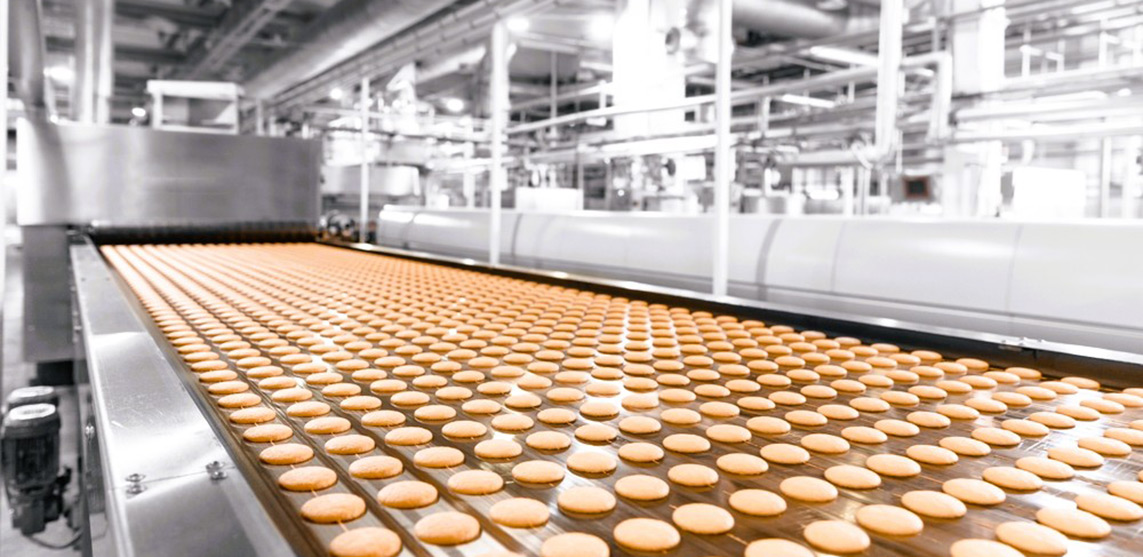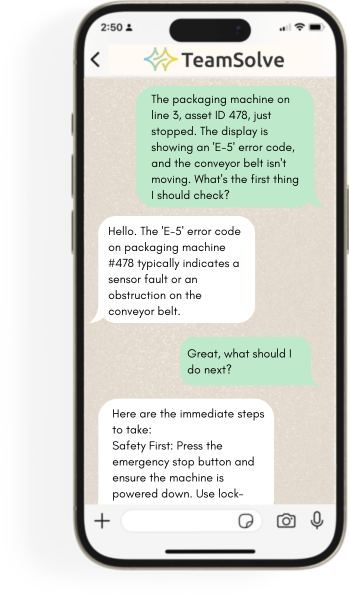Beyond the Breakfast Bowl: Why Food Manufacturers Can’t Afford to Ignore Asset Management

A single machine breakdown in the world of manufacturing can ripple through the entire production line, turning a well-oiled operation into a logistical nightmare. For a cereal manufacturer, for example, a faulty conveyor belt could halt the flow of toasted oat flakes, causing a cascade of delays from the packaging machine to the final palletisation process.
These aren’t just minor hiccups; they represent significant financial losses, compromised product quality, and even potential safety risks. The core challenge lies in the complex and often fragmented nature of managing a vast array of specialised assets and machinery.
Traditional asset management in food manufacturing relies on a patchwork of paper manuals, tribal knowledge passed down from seasoned technicians and scattered digital files. This approach is ripe for inefficiency. When a new team member joins, they're often left to piece together information from various sources, leading to a steep learning curve and a higher risk of errors. Even experienced technicians can struggle to recall the specific torque settings for a flaking mill or the exact procedure for cleaning a fryer’s heating element, especially under pressure.
This reliance on fragmented information and individual memory is a major bottleneck, slowing down issue resolution and increasing the likelihood of human error.

The Problem with Reactive Maintenance
Many food manufacturers operate in a reactive maintenance model, where equipment is repaired only after it has failed. This "if it ain't broke, don't fix it" mentality is a gamble that rarely pays off. A sudden breakdown is almost always more expensive and time-consuming to fix than a planned maintenance task. The resulting downtime affects not only production schedules but also labour costs, as teams sit idle or scramble to find a solution. The lack of a centralised knowledge base exacerbates this problem, as valuable time is wasted searching for the right manual or calling a retired colleague for advice. For a cereal plant, a sudden failure of the puffing machine could mean hundreds or even thousands of kilograms of ingredients are wasted, and production is halted for an entire shift while technicians try to troubleshoot the problem.
Introducing the Knowledge Twin™: A Modern Solution to an Age-Old Problem
The future of asset management in food manufacturing isn't about more paper or better spreadsheets; it's about intelligent, integrated systems. This is where a solution like Teamsolve’s Knowledge Twin™ comes into play. By centralising all equipment data, manuals, and procedures, the system provides instant access to tailored instructions and safety protocols, drastically reducing repair times and minimising costly downtime. The AI acts as an intelligent co-pilot, leveraging the "Knowledge Twin" to capture institutional knowledge and provide real-time guidance to technicians, ensuring efficient and safer maintenance across all machinery.
Imagine a technician on the factory floor facing a malfunctioning packaging machine. Instead of hunting for a manual, they can access the Knowledge Twin™ on their tablet. The system instantly provides a diagnostic checklist, a step-by-step troubleshooting guide with embedded videos, and a history of previous repairs on that specific machine. This real-time, equipment-specific guidance allows for faster issue resolution—up to 35% faster, in fact.
Furthermore, the Knowledge Twin™ addresses the critical issue of knowledge retention. As experienced staff retire or move on, their expertise is captured and stored within the system, making it accessible to everyone. This ensures that a new maintenance team member can perform a complex task, like calibrating a fruit dispenser, with the same precision as a veteran technician. The system also automates safety alerts and maintenance scheduling, boosting maintenance team productivity by an impressive 25%.
In a competitive market where efficiency and quality are paramount, food manufacturers can no longer afford to let antiquated asset management practices hold them back. By embracing a modern, data-driven approach, they can move beyond reactive maintenance and ensure their operations are not just running but running at their absolute best.
Contact Us
Recommended Case Studies
Ready to Experience the Power of Knowledge Twin?




